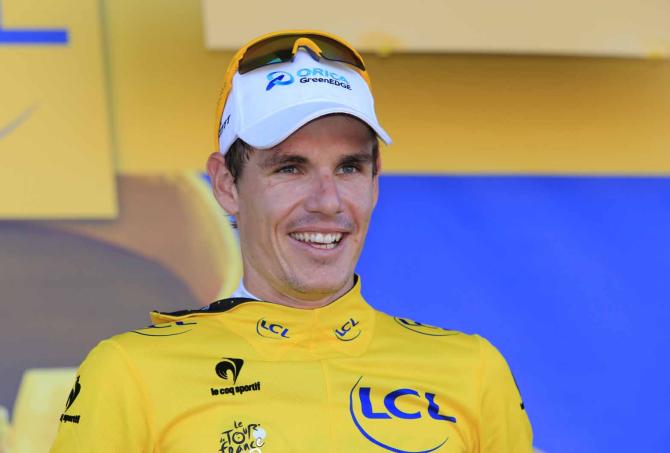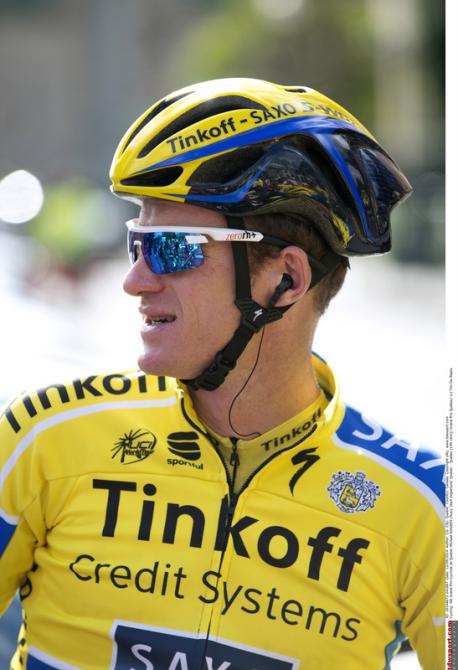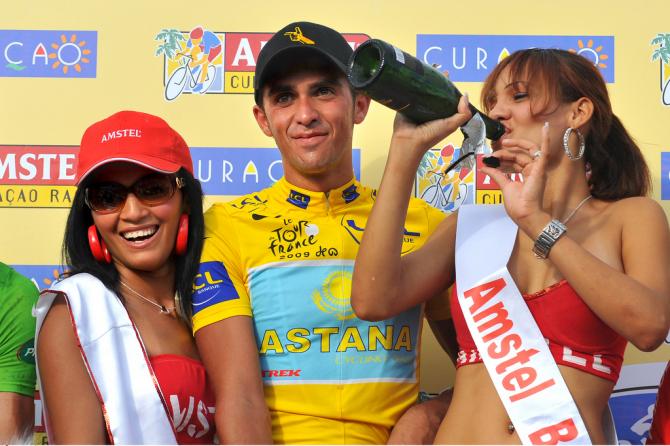UCI Anti-Doping Tribunal brings speed, privacy in doping cases
More details on 2015 anti-doping rules



The UCI formally announced its 2015 Anti-Doping rules today, adding more details to those already noted by Cyclingnews. The rules were revamped in order to align with the 2015 edition of the WADA code, but also put into action a promise by UCI president Brian Cookson to establish a global Anti-Doping Tribunal for the sport.
The UCI Management Committee approved the tribunal in September, making it the first stop for all cycling doping cases for international riders. Made up of "judges specialised in anti-doping, independent of the UCI", the tribunal aims to make anti-doping case adjudication more consistent and timely than those of the national anti-doping organisations, which previously held this role. "This should ensure consistency and uniform quality in the decisions, significantly reduce the number of cases that go to the Court of Arbitration for Sport (CAS) on appeal and lift the operational burden from National Federations," the UCI stated.
The Anti-Doping Tribunal will take the place of the national disciplinary process for international athletes, while national riders will still fall under their National Anti-Doping Organisation's (NADO) procedures. The UCI stated that the majority of Anti-Doping Tribunal cases" will be heard remotely using video conference facilities to expedite proceedings" and any appeals will head directly to the Court of Arbitration for Sport.
The news comes a year too late for Orica-GreenEdge's Daryl Impey, who missed out on a chance to return to the Tour de France as the first South African to have worn the race's maillot jaune. Impey tested positive for probenicid at the national championships in early 2014, but the South African Anti-Doping case took months to resolve. Ultimately Impey was able to prove his innocence and was cleared - the positive was a result of contamination of empty gel capsules by a local pharmacist - but he missed out on three months of competition, including the Tour. Similarly, Michael Rogers tested positive in late 2013 for clenbuterol, but cleared his name six months later.
The new UCI rules aim to help prevent such cases from being public until the athletes have had a chance to prove their innocence, and will not require provisional suspensions from competition when athletes have turned up positive for "non-specified substances", such as probenicid or clenbuterol, which are likely to show up due to contamination or some other inadvertent exposure by the athlete. The public will never know, unless the rider chooses to announce the adverse finding, as the UCI has made it a policy only to announce provisional suspensions through a published list.
Biologial passport violations and positives for "specified substances" will still require provisional suspensions.
Riders who test positive for non-specified substances like probenicid will also have a better chance at lighter bans. The rules come too late for Alberto Contador, who was banned for two years for his clenbuterol positive. But future athletes can take advantage of greater flexibility in the procedures, allowing reduced bans for no-fault positives to as little as just a warning, or reduced bans for situations when banned substances are used out of competition for non-sports performance reasons, like medication or recreational drugs.
The latest race content, interviews, features, reviews and expert buying guides, direct to your inbox!
The UCI will also step up its efforts for "smarter testing", with more focus on "surprise pop-up testing missions" to make controls less predictable, and will focus on the international riders in the Registered Testing Pool. The UCI's tests will mostly be carried out by its Cycling Anti-Doping Foundation (CADF), in collaboration with the National Anti-Doping Organisations.
The UCI also imposed new rules for riders coming out of retirement. If a rider was in a Registered Testing Pool when he or she retired, they must give six months notice to the UCI to become available for testing. After a doping ban, the rider must also be subjected to six months of reinstatement doping controls prior to returning to competition, the tests will be done by the CADF and must be done at the rider's expense.
